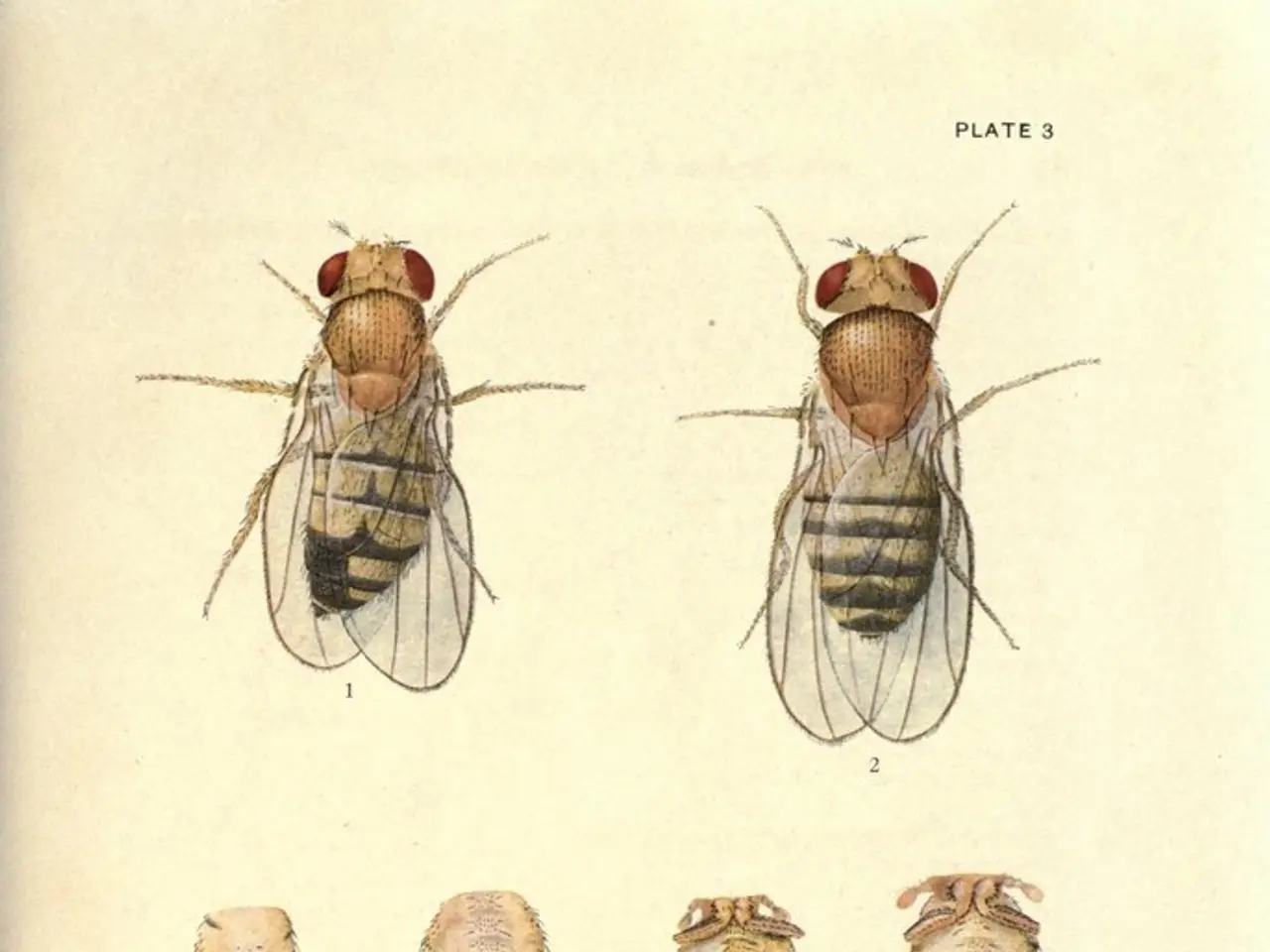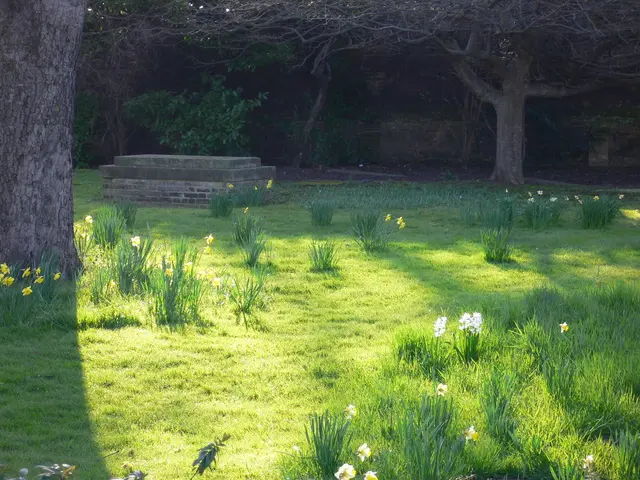Predators of Aphids: Strategies for Attracting Advantageous Insects to Manage Aphid Infestations
Go organic with aphid control: Learn about natural aphid predators and welcome them to your garden
Ever found your plants looking a little wilted and spots covered in tiny, sugar-like substances? You might be dealing with aphids. These small insects feed on plant juices, potentially causing serious damage if left unchecked. Luckily, there's an eco-friendly solution to tackle aphid infestations - embracing natural predators.
About Aphids and their Furry Friends
Aphids, known as plant lice, are common garden pests that feast on plant fluids by piercing them and sucking out the juices. While small populations won't do much harm, heavy infestations can lead to wilting, curling leaves, stunted growth, and delays in flower and fruit production [1].
However, several insect species have a soft spot for aphids' mealworms. These beneficial critters are an excellent alternative to chemical pesticides, making them perfect allies in your aphid-fighting arsenal.
Aphid Predators: Who's the Hunter?
Knowing who's on your side can help you maintain a balanced aphid population that won't cause significant plant damage.
- Ladybugs (Ladybird beetles): With their distinctive round bodies and black spots, ladybugs are a common sight in gardens. Both larvae and adults feed on aphids, with a single ladybug capable of consuming up to 5,000 aphids in its lifetime [2][3][5].
- Hoverflies (Flower flies): Similar to bees in appearance, hoverflies are quite helpful in disguise. They feed on nectar and pollen as adults, while their larvae are the real aphid warriors. Be sure to plant flowering species like dill and fennel to attract them to your garden [3][4][5].
- Lacewings: These insects resemble little moths, with delicate lacy wings. The larvae are the star players, preying on aphids throughout their life stages [3].
- Midges: The tiny yellow or orange larvae of these flies feed on soft-bodied insects such as aphids. They pierce their victim's bodies and feed on their insides [2].
Attracting the A-Team to your Backyard Battlefield
Instead of purchasing beneficial insects, focus on creating a garden that attracts them naturally.
- Native plantings: Opt for a diverse mix of trees, shrubs, perennials, annuals, and ornamental grasses to support a broad range of beneficial insects [5].
- Flowering plants: Introduce species like dill, fennel, yarrow, marigolds, daisies, and cosmos to lure ladybugs, hoverflies, and lacewings [1][3][5].
- Provide shelter and water: Mulch, ground cover, and shallow water sources help create a hospitable environment where predators can thrive [1].
- Avoid broad-spectrum pesticides: These chemicals eliminate both pests and beneficial insects, disrupting the natural predator-prey balance [1][2][3].
- Leave wild or untended patches: Wildflower corners or less-manicured areas offer refuge and breeding grounds for beneficial predators [3].
FAQs
Q1: How do I get rid of aphids for good?A1: Complete aphid elimination isn't realistic, as they are prevalent in many gardens. However, by incorporating a mix of native plants, promoting beneficial insects, and practicing careful pesticide use, you can maintain a balanced ecosystem that keeps aphids under control.
Q2: What do aphids hate the most?A2: Aphids don't really have specific 'enemies' they dislike. However, many beneficial insects feed on aphids, so encouraging these critters to inhabit your garden should help keep aphid populations in check.
Sources:[1] Horticulture.co.uk. (2021, July 27). Aphid - rid garden pests naturally. Retrieved April 21, 2023, from https://www.horticulture.co.uk/how-to/garden-pests/aphid/[2] Gardeningknowhow.com. (n.d.). Aphid midges | tips for aphid midge control. Retrieved April 21, 2023, from https://www.gardeningknowhow.com/plant-problems/pests/aphid/aphid-midge-control-ways-to-get-rid-of-aphid-midges.htm[3] Gardensalive.com. (n.d.). 10 common aphid predators and their life cycles. Retrieved April 21, 2023, from https://www.gardensalive.com/garden-living/common-aphid-predators-their-life-cycles[4] Savannahriver.org. (n.d.). Parasitic wasps: Allies in the fight against pests. Retrieved April 21, 2023, from https://www.savannahriver.org/extension/pest-management/parasitic-wasps-allies-in-the-fight-against-pests[5] Extension.umn.edu. (n.d.). Beneficial garden insects: Attract, identify, and enjoy these garden allies. Retrieved April 21, 2023, from https://extension.umn.edu/yard-garden-bugs/beneficial-garden-insects[6] Maryellenellis.com. (2021, September 24). 9 ways to control aphids naturally. Retrieved April 21, 2023, from https://www.maryellenellis.com/9-ways-to-control-aphids-naturally/
By cultivating a home-and-garden that provides a welcoming environment for beneficial insects, you can encourage ladybugs, hoverflies, lacewings, and midges to control aphid populations naturally. To attract these natural predators, consider planting native plants, flowering species like dill, fennel, yarrow, marigolds, daisies, and cosmos, and providing shelter and water sources within your garden.








